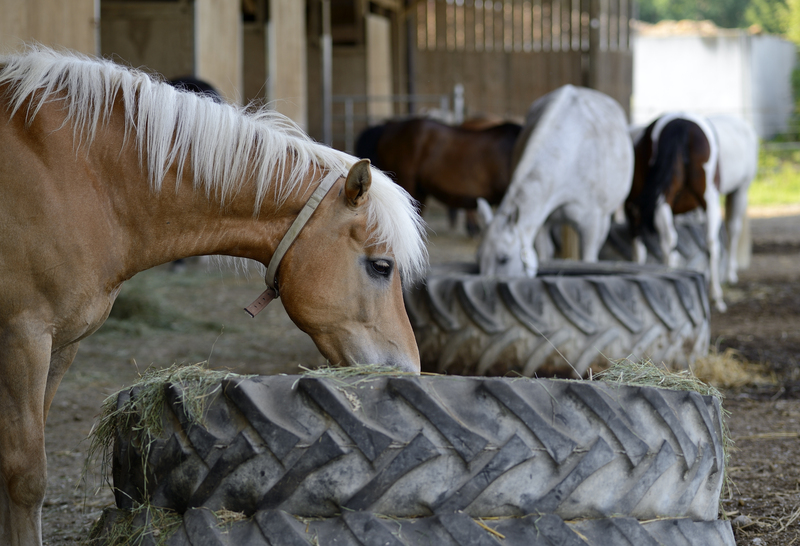Dynamic Approaches to School-Wide Recycling Initiatives
Promoting recycling within schools goes beyond placing a few bins in the hallways. Dynamic and comprehensive school-wide recycling initiatives can transform campuses into centers of environmental responsibility and education. In this article, we'll explore innovative strategies, best practices, and actionable steps for fostering a culture of recycling in schools. Whether you're an educator, administrator, parent, or student, these insights will empower you to make a significant and lasting impact.

Why School Recycling Initiatives Matter
Educational institutions generate significant amounts of waste each day--from paper and plastic to electronics and food scraps. Implementing effective recycling initiatives in schools not only reduces the environmental footprint but also teaches lifelong sustainability habits to students. When students engage with dynamic recycling programs, they:
- Learn the importance of resource conservation
- Develop leadership and teamwork skills
- Influence family and community recycling behaviors
- Contribute to healthier and cleaner learning environments
Dynamic approaches to school-wide recycling move beyond the basic and foster creativity, engagement, and accountability.
Key Elements of Dynamic School Recycling Programs
Effective, wide-reaching recycling programs share certain core components. Let's break down these key pillars:
- Education and Awareness: Frequent campaigns and curriculum integration
- Accessible Infrastructure: Clearly marked, conveniently placed recycling bins
- Student and Staff Engagement: Involving the whole school community
- Monitoring and Feedback: Regular tracking, transparent results, and public recognition
1. Launching Awareness Campaigns
Awareness is the foundation of every successful recycling initiative. Both staff and students must know what can be recycled, how to recycle properly, and why recycling matters. Some dynamic approaches to awareness include:
- Hosting interactive assemblies & environmental fairs
- Designing student-led poster contests for recycling messaging
- Publishing tips and facts in school newsletters and digital boards
- Incorporating sustainability topics across Science, Social Studies, and Math lessons
Pro Tip: Use hands-on demonstrations, such as a lunchtime waste audit, to spark curiosity and discussion among students.
2. Creating a Recycling-Friendly Environment
Physical infrastructure matters just as much as educational campaigns. Ensure that every classroom, hallway, cafeteria, and outdoor area is equipped with clearly labeled, well-designed recycling containers. Consider:
- Color-coding bins for specific materials (paper, plastic, metal, e-waste)
- Posting visual guides and reminders at each station
- Scheduling regular bin maintenance and emptying to prevent overflow
- Addition of composting bins next to recycling and landfill options
Tip: Work with facilities staff to map out optimal bin locations for maximum convenience and compliance.
3. Leveraging Student Leadership
Students are powerful drivers of change. Empowering student "Green Teams" or "Eco-Clubs" embeds recycling ownership deep within school culture. Dynamic initiatives include:
- Recruiting and training Recycling Ambassadors in every grade
- Establishing a student-led waste monitoring committee
- Designing custom recycling projects (e.g., recycling art contests, upcycling challenges)
- Organizing monthly "Zero Waste Challenge" days
Best practice: Let students analyze recycling data and present results at assemblies or to the administration, building a sense of pride and accomplishment.
4. Integrating Technology and Innovation
Modern school-wide recycling initiatives increasingly incorporate technology for tracking progress and engaging stakeholders. Consider these inventive approaches:
- Installing smart recycling bins that record usage data and alert staff when full
- Deploying an app or online platform for reporting issues and celebrating recycling milestones
- Using QR codes on bins to link to sorting guides or recycling facts
- Gamifying the recycling experience with online leaderboards or challenges
Integration with existing school technology platforms ensures broader reach and buy-in from digital-native students.
5. Building Strong Partnerships
Schools don't have to do it alone. Collaborate with:
- Local waste management companies: For logistical support and educational visits
- Environmental NGOs: For curriculum resources and project sponsorship
- Parent-teacher associations: For volunteer assistance and home engagement
- Local businesses: For prize donations and public recycling drives
Broad partnerships strengthen resources, enrich programming, and extend the impact of school recycling initiatives into the community.
Creative Ideas for School-Wide Recycling Programs
If you're seeking to dynamize your school's recycling initiative, try these engaging strategies:
Themed Recycling Weeks
- Pledge Drives: Challenge students to commit to a week-long recycling goal, such as reducing single-use plastics or collecting the most paper per class.
- Waste-Free Lunch Day: Encourage students and staff to bring lunches with reusable packaging only. Award points for participation or innovation.
Art From Waste Exhibitions
- Host a school art show featuring creations made from recycled materials
- Invite local artists to give workshops on upcycling
Recycling Olympics
- Organize grade-level competitions around sorting speed and accuracy
- Present trophies or certificates to "Recycling Champions"
"Adopt-a-Bin" Program
- Assign different classes or clubs to monitor, empty, and maintain specific recycling bins
- Reward the best-maintained bin with classroom privileges or treats
These types of dynamic recycling approaches in schools foster a sense of ownership, teamwork, and fun, making sustainability memorable and impactful.
Integrating Recycling Education into the Curriculum
Lasting change comes from education. Embedding recycling themes across subjects ensures that sustainability is seen as relevant and interdisciplinary. Suggestions include:
- Science: Explore decomposition, life cycles of materials, or the impact of waste on ecosystems
- Mathematics: Analyze school waste data, calculate recycling rates, and make projections
- Language Arts: Write persuasive essays or speeches advocating for recycling improvements
- Art: Design creative recycling bin labels or murals
- Social Studies: Investigate global waste management practices and environmental justice topics
Blending hands-on projects (like organizing a campus clean-up) with classroom learning reinforces concepts and builds real-world skills.
Measuring and Celebrating Recycling Success
Tracking progress is essential to maintaining momentum. Here's how to do it dynamically:
- Conduct baseline waste audits at the start and set measurable goals
- Use posters, graphs, and digital dashboards to share recycling rates with the entire school community
- Recognize classes or individuals who contributed most to recycling improvements
- Highlight milestones with school-wide announcements, certificates, or eco-parties
Publicizing success stories not only rewards participants but inspires ongoing commitment all year long.
Addressing Challenges in School-wide Recycling
Every dynamic approach to recycling comes with unique challenges. Anticipate and strategize for:
- Contamination: Make sorting easy with clear bin signage and ongoing education
- Participation fatigue: Rotate leadership roles and introduce new themes to keep engagement high
- Infrastructure limitations: Seek grants or community partnerships for upgraded bins and equipment
- Communication gaps: Provide regular updates and multiple ways for students and staff to offer feedback
Proactive planning and flexibility are key to ensuring the longevity and effectiveness of school-wide recycling initiatives.
Case Studies: Dynamic School-Wide Recycling Success Stories
Green Elementary's "Buddy Bin" Challenge
Green Elementary launched a "Buddy Bin" challenge where older students were paired with younger peers to educate them on proper waste sorting. As a result, contamination rates dropped by 40% and students formed new mentorship bonds.
Oakridge High School's Smart Bin Pilot
By installing smart bins that provided feedback via display screens, Oakridge High boosted recycling rates by 25% and used collected data for math and science lesson plans.
Riverdale School's "Recycling Invention Fair"
Students competed to develop inventions from recycled materials--solar ovens, bottle cap mosaics, and even composting robots. Parents and the wider community attended the fair, raising awareness and funds for expanding the program.

Tips for Sustaining Dynamic School Recycling Programs
- Continuously solicit feedback from students and staff to improve systems
- Regularly rotate themes, campaigns, or challenges to keep ideas fresh
- Celebrate both small and major achievements to boost morale
- Engage community stakeholders annually in planning meetings
- Consistently align recycling initiatives with broader school values and mission
Over time, dynamic approaches to school-wide recycling can shift an entire school's culture, embedding environmental stewardship into everyday learning.
Conclusion: Empowering the Next Generation of Environmental Leaders
Dynamic school recycling programs represent more than waste diversion--they help develop engaged global citizens. By leveraging a mix of education, innovation, community involvement, and fun, schools can cultivate a legacy of sustainability that students will carry throughout their lives. Start with small steps, be bold with ideas, and inspire your school community to become recycling leaders of tomorrow.
Ready to make a difference? Launch or reinvigorate your school-wide recycling initiative today and see the transformation unfold!